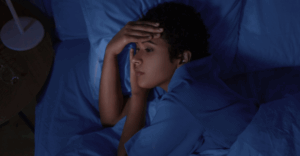We often think of sleep as a passive state, but it’s actually one of the most crucial processes for maintaining health and well-being. From brain function to heart health, sleep impacts every aspect of our lives. Unfortunately, many people struggle to get enough quality sleep, and the consequences can be severe. In this blog, we’ll explore how sleep affects your health, answer some of the most common sleep-related questions, and provide practical tips for better rest.
Can Sleep Apnea Kill You?
Sleep apnea is more than just loud snoring—it’s a serious medical condition where breathing repeatedly stops and starts during sleep. If left untreated, sleep apnea can lead to life-threatening complications such as heart disease, high blood pressure, and stroke.
While sleep apnea itself doesn’t directly cause death, the conditions it contributes to can be fatal. Poor oxygen supply stresses the cardiovascular system, increasing the risk of sudden cardiac events. That’s why it’s essential to recognize the signs, such as excessive daytime sleepiness, loud snoring, and abrupt awakenings accompanied by gasping or choking. Getting properly diagnosed and treated can significantly improve quality of life and reduce long-term health risks.
Can Sleep Apnea Cause High Blood Sugar?
Yes, sleep apnea can contribute to high blood sugar levels. Sleep apnea is associated with metabolic syndrome, which includes conditions like:
- High blood sugar
- Low levels of “good” HDL cholesterol
- High levels of triglycerides
- Excess abdominal fat
- High blood pressure
Metabolic syndrome increases the risk of heart disease, diabetes, and stroke. If you suspect you have sleep apnea, it’s important to seek treatment to protect your long-term health. Properly managing sleep apnea through lifestyle changes, weight loss, and medical interventions can help regulate blood sugar levels and overall metabolic health.
Can Sleep Deprivation Cause Headaches?
Yes, lack of sleep is a well-known trigger for headaches. Sleep deprivation can cause tension headaches and migraines due to increased stress levels and muscle tension. In some cases, people with chronic sleep issues may develop more frequent or severe headaches.
Maintaining a regular sleep schedule, staying hydrated, and practicing relaxation techniques can help prevent sleep-related headaches. Additionally, avoiding caffeine and alcohol before bed, as well as creating a calming bedtime routine, can reduce headache occurrences.
What Sleep Position is Best?
Choosing the right sleep position can significantly impact your health. According to Dr. Virend Somers, a cardiologist at Mayo Clinic, “There’s a host of evidence overall suggesting that probably sleeping on the side is better.” Side sleeping is particularly beneficial for people with sleep apnea, acid reflux, and back pain.
Here’s a breakdown of sleep positions:
- Side Sleeping: Best for reducing snoring and acid reflux, and improving spinal alignment.
- Back Sleeping: Good for preventing wrinkles but can worsen snoring and sleep apnea.
- Stomach Sleeping: Helps reduce snoring but can strain the neck and spine.
Adopting the right sleep position for your needs can improve sleep quality and prevent discomfort.
How to Fall Asleep Fast?
Struggling to fall asleep? Try the 4-7-8 breathing method, developed by Dr. Andrew Weil. This technique helps calm the nervous system and prepare your body for rest:
- Exhale completely through your mouth, making a whooshing sound.
- Close your lips and inhale silently through your nose for 4 seconds.
- Hold your breath for 7 seconds.
- Exhale through your mouth for 8 seconds.
Practicing this technique regularly can make it easier to fall asleep and stay asleep. Other methods include avoiding screens an hour before bed, engaging in a relaxing pre-sleep routine, and keeping a consistent sleep schedule.
Should You Sleep Without a Pillow?
Sleeping without a pillow can be beneficial for certain people. If you sleep on your stomach, ditching the pillow can help prevent neck strain. However, back and side sleepers generally need a pillow to maintain proper spinal alignment. Using an ergonomic or orthopedic pillow can provide better support and enhance sleep quality.
What is Sleep Paralysis?
Sleep paralysis is a phenomenon where a person is temporarily unable to move or speak while falling asleep or waking up. Sleep paralysis occurs when the body remains in a sleep-like state even though the mind is awake.
While frightening, sleep paralysis is usually harmless. Reducing stress, improving sleep habits, and maintaining a regular sleep schedule can help minimize episodes. If sleep paralysis is frequent or distressing, speaking to a healthcare provider can offer additional solutions, such as cognitive behavioral therapy or sleep studies.
Take Control of Your Sleep Health
Sleep is one of the most powerful tools for maintaining health and preventing chronic conditions. Whether it’s managing sleep apnea, optimizing sleep positions, or using relaxation techniques, small adjustments can make a big difference in your overall well-being.
Prioritizing good sleep habits can improve mental clarity, boost immune function, and reduce the risk of serious health conditions. If you’re struggling with sleep, consider consulting a healthcare provider to develop a personalized plan for better rest. By making sleep a priority, you can take a proactive step toward long-term health and well-being.
Looking for expert guidance on improving your sleep health? Connect with an EVEXIAS provider today and take the first step toward better rest and a healthier life.






